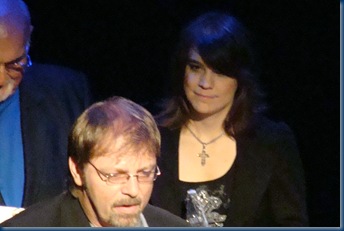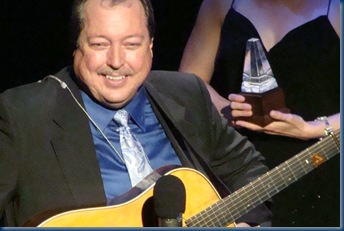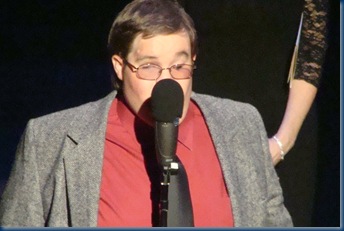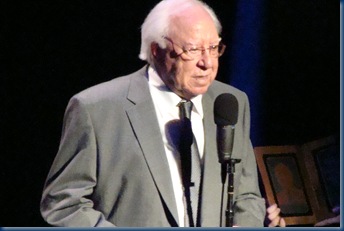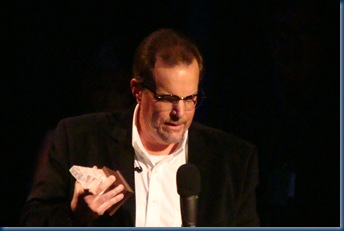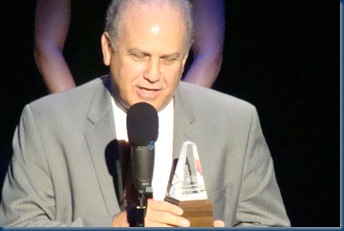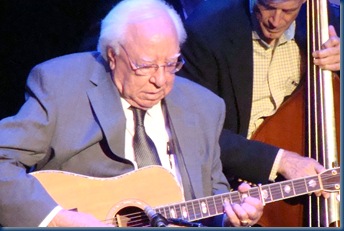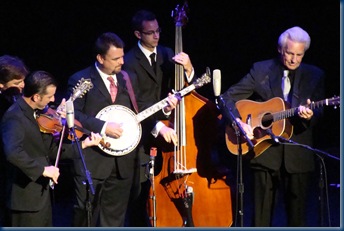Most years when I attend the IBMA World of Bluegrass in Nashville, Tennessee I take a drive north to Owensboro, Kentucky to tour the International Bluegrass Music Museum (IBMM). During either the drive up to Owensboro or during the drive back toward Nashville I usually stop by the little Kentucky town where Bill Monroe was born, Rosine, Kentucky. Each time I visit Rosine, I make my way to the cemetery there to pay my respects to Mr. Monroe. 
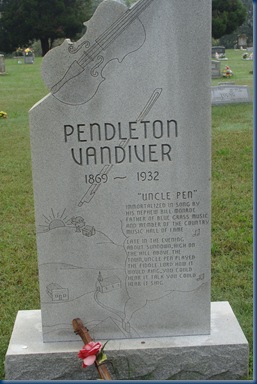 I happened upon a rather large headstone with the name Wesley P. Phelps, PFC, USMC. On the stone it stated that PFC Phelps was awarded the Congressional Medal of Honor. This is the highest award that can be bestowed upon a military man. The highest!
I happened upon a rather large headstone with the name Wesley P. Phelps, PFC, USMC. On the stone it stated that PFC Phelps was awarded the Congressional Medal of Honor. This is the highest award that can be bestowed upon a military man. The highest!
I was recently watching a TV program on PBS about famous graveyards around the country and my memory of that headstone was jogged. I knew I had taken a picture of it, so I dug through my photo files and found the picture. Here it is.  After locating the picture I was spurred on to find out more about PFC Wesley P. Phelps. I found out a lot about PFC Phelps in a Wikipedia entry.
After locating the picture I was spurred on to find out more about PFC Wesley P. Phelps. I found out a lot about PFC Phelps in a Wikipedia entry.
Wesley Phelps (June 12, 1923 – October 4, 1944) was a United States Marine who posthumously received the Medal of Honor for his heroic actions and sacrifice of life during the World War II Battle of Peleliu.
Wesley Phelps was born in Neafus, Kentucky on June 12, 1923. He was educated in the Ohio County, Kentucky, elementary schools and graduated from Horse Branch High School in 1942. Radio was his hobby and he had built some one-tube sets. Deciding to turn his hobby into an occupation, he went to school in Owensboro, Kentucky, for four months where he studied basic electricity, then took a three-month course in radio repair work at the Lafayette Trade School at Lexington, Kentucky. He followed that with studies in field radio repair work, and radio repair work on aircraft receivers at the Johnson Pre-Frequency Modulation School.
Although he was the sole support of his aged parents who owned and operated a 70-acre (280,000 m2) farm with his help, he was called up by the draft and was inducted into the United States Marine Corps on April 9, 1943 in Indianapolis, Indiana.
After boot camp at Marine Corps Recruit Depot San Diego, Pvt Phelps was assigned to the Signal Battalion at the Marine Base at San Diego for one month and then was transferred to the Infantry Training Battalion at Camp Elliot, California. He successfully completed an eight-week course on the Browning Heavy Machine Gun, 30 caliber, and was classified as a heavy machine gunner. Pvt Phelps joined the 27th Replacement Battalion in September and left the United States on October 23, 1943, joining Company M, 3rd Battalion, 7th Marines of the 1st Marine Division in December, just a few days before the unit left for the combat landing on Cape Gloucester, New Britain. After the Cape Gloucester campaign, all machine gun companies in the division, of which Company M was one, were broken up and their personnel were assigned to rifle companies. In this shuffle, Pvt Phelps became a crewman on a light machine gun in Company K of the same battalion. He was promoted to private first class in April 1944.
After a so-called "rest" at Pavuvu Island in the Russell Islands, the 1st Division left for the little-publicized Peleliu Island operation. After nineteen days of bitter and costly fighting, the night of October 4, 1944 found Company K strung out along the military crest of one of the coral mountains for which Peleliu is noted. With the Marines on one slope of the hill and the Japanese on the opposite slope, rifles became useless and a series of hand grenade battles took place over a period of several days. During the night of the fourth the enemy launched a particularly vicious counterattack. PFC Phelps and a fellow Marine were in a foxhole when a Japanese grenade landed with a thud between them.
Private First Class Phelps shouted, "Look out, Shipley!" then unhesitatingly rolled over on the grenade, taking the full force of the explosion with his own body. Phelps was killed while PFC Richard Shipley received only a small scratch. The Kentucky farm boy had sacrificed his own life to save that of his buddy.
Private First Class Phelps was initially buried in the United States Armed Forces Cemetery on Peleliu, but was later reinterred in Rosine Cemetery, Rosine, Kentucky.
The Medal of Honor was presented to the hero's mother in Rosine, Kentucky, on April 26, 1946 by the Commanding Officer of the Naval Ordnance Plant at Louisville, Kentucky. Below is the offical citation signed by President Harry S. Truman.
The President of the United States takes pride in presenting the MEDAL OF HONOR posthumously to
PRIVATE FIRST CLASS WESLEY PHELPS
UNITED STATES MARINE CORPS RESERVE
for service as set forth in the following CITATION:
- For conspicuous gallantry and intrepidity at the risk of his life above and beyond the call of duty while serving with the Third Battalion, Seventh Marines, First Marine Division, in action against enemy Japanese forces on Peleliu Island, Palau Group, during a savage hostile counterattack on the night of October 4, 1944. Stationed with another Marine in an advanced position when a Japanese hand grenade landed in his foxhole, Private First Class Phelps instantly shouted a warning to his comrade and rolled over on the deadly bomb, absorbing with his own Body the full, shattering impact of the exploding charge. Courageous and indomitable, Private First Class Phelps fearlessly gave his life that another might be spared serious injury and his great valor and heroic devotion to duty in the face of certain death reflected the highest credit upon himself and the United States Naval Service. He gallantly gave his life for his country.[1]
/S/ HARRY S. TRUMAN
Folks, I know there isn't much here about Bluegrass music, but I feel it such honor that I stumbled upon PFC Phelps headstone and have had the opportunity to learn about this great young man.
"NUFF SAID"

